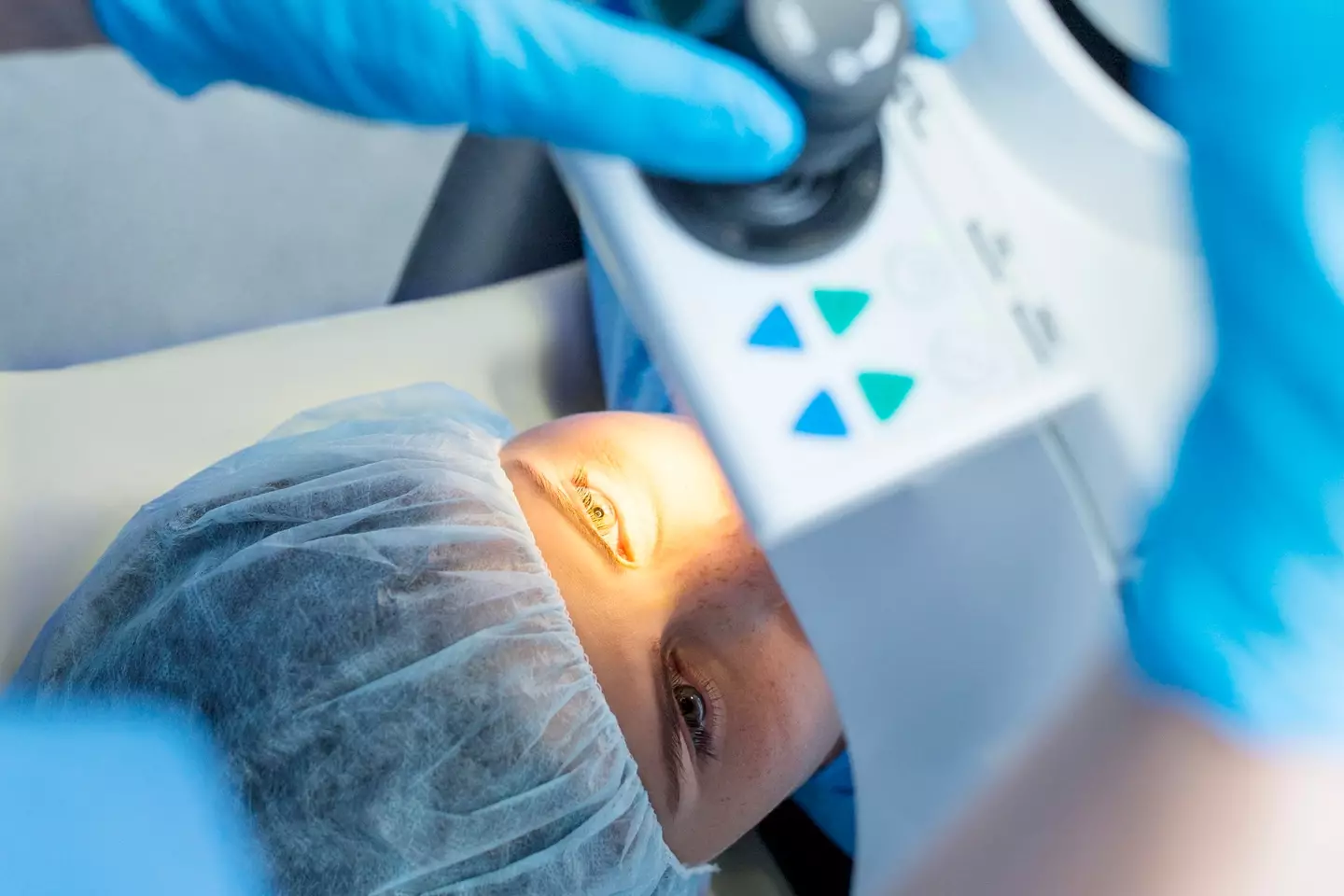A group of laser eye surgery patients have banded together to raise awareness of a potentially agonising after-effect of the procedure after one tragically took their own life as a result.
Ryan Kingerski, a 26-year-old police officer from Pennsylvania, previously took a break from his notoriously intense profession to undergo surgery on his eyes, having suffered problems with his vision for some years.
In the weeks following the procedure, however, the young cop began suffering from a series of indicators that something had gone wrong.
According to his family, Kingerski ceaselessly complained of blinding headaches, as well as double vision and seeing dark spots and floaters.
Despite reaching out to a number of specialists, no doctor was able to remedy the officer's pain and earlier this month, he committed suicide.
Kingerski took his own life earlier this year (Family Handout) Kingerski's father later told CBS: "He left us a note that said, 'I can’t take this anymore. LASIK took everything from me.'
"That’s the note that we got left."
LASIK is the world's most common form of laser refractive surgery, and is used by hundreds of thousands of people per year as an alternative to glasses or contact lenses.
The procedure sees a specialised cutting laser reshape the cornea.
In individuals with poor vision, the cornea is unable to refract light onto the retina at the back of the eye effectively, due to its incorrect bend. Reshaping the cornea allows refraction, and therefore ensures correct vision.
Providers of the procedure have long boasted a 95-99 per cent safety rate - but as in any surgery things can go wrong.
Such was the experience of another patient, who said the painful after-effects of the procedure left her feeling suicidal.
The surgery has some potentially-dangerous side effects (Getty Stock Image) The same patient told The Post she knew of 40 other receivers of the surgery, who'd tragically acted on their suicidal impulses.
Florida-born Paula Cofer, 66, told the publication this week: "I really didn’t want to stick around at times, but I decided I would to get the word out about how dangerous this surgery can be.
"The LASIK lobby and the surgeons will tell you only 1 percent of patients have issues afterward. That’s not true. There are multiple studies that indicate otherwise. The percentage of those with poor outcomes are in the double digits, not 1 percent. And they know it."
Cofer continued: "If you understand LASIK and what it does to the eyes and cornea, you realize you can’t do it on a healthy eye and not expect complications. Not everyone has severe complications, but a lot more people are suffering than you know.
"I got floaters, severe dry eyes, induced astigmatism and severe night vision problems."
Several patients have spoken out against the procedure (Getty Stock Image) Cofer has also recruited former FDA advisor Morris Waxler, who previously reviewed data for LASIK during the time it became an approved procedure - a job he now regrets.
The 89-year-old also told the news outlet: "It didn’t matter what questions and concerns I had, because the surgeons were very powerful and still are. People come in with healthy eyes and all they need is eyeglasses.
"But when surgeons cut the cornea, they are removing nerves and leaving the corneas with odd shapes and some patients will have intractable pain."

 Rhianna Benson
Rhianna Benson

